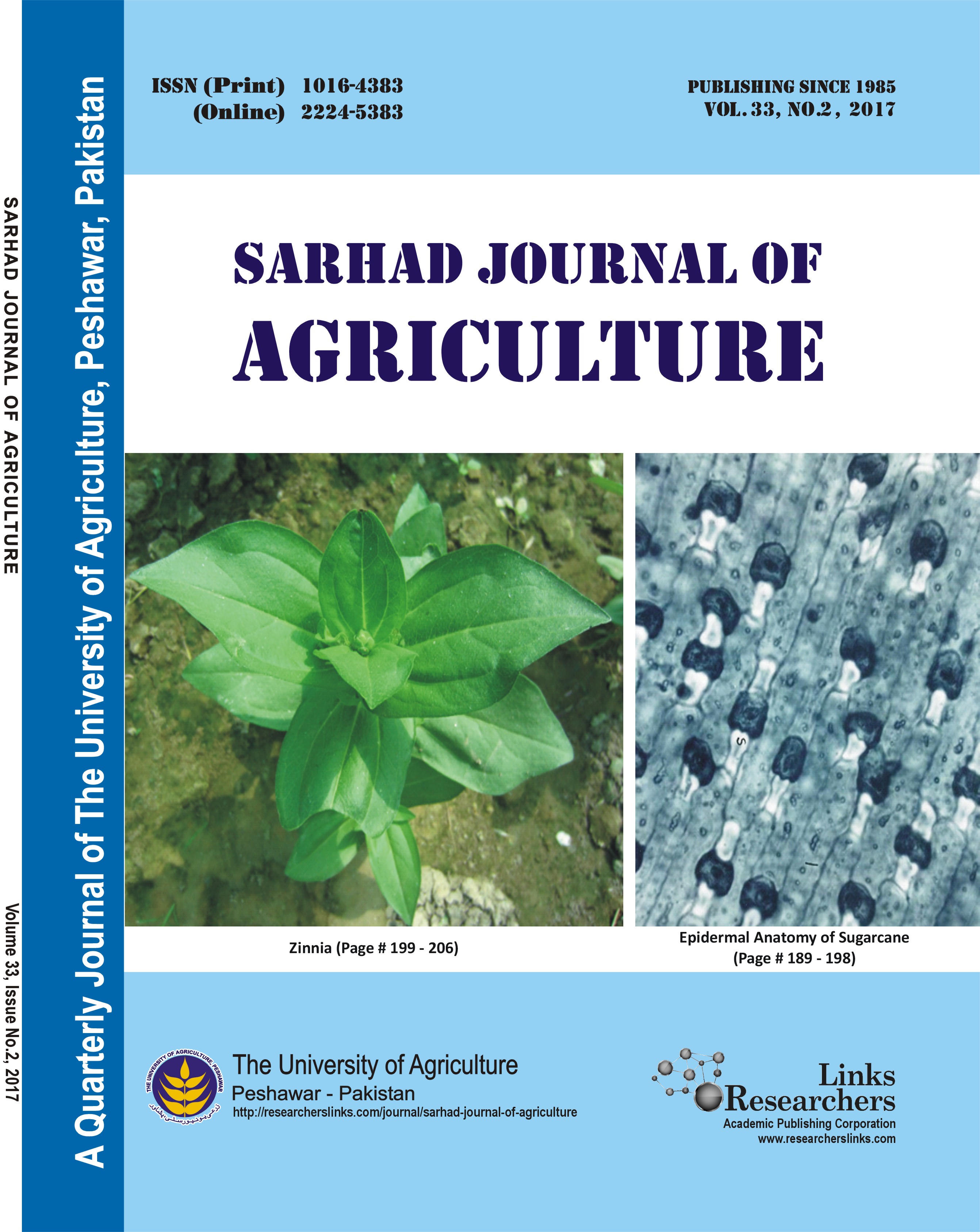Allocative Efficiency of Broiler Farms in District Charsadda, Khyber Pakhtunkhwa: Stochastic Frontier Analysis
Allocative Efficiency of Broiler Farms in District Charsadda, Khyber Pakhtunkhwa: Stochastic Frontier Analysis
Irfan Ullah, Shahid Ali*, Muhammad Fayaz and Abbas Ullah Jan
ABSTRACT
This study estimated and examined allocative efficiency of broiler farms in district Charsadda, Khyber Pakhtunkhwa, Pakistan. Data from 120 respondents was collected through multistage random sampling technique. Stochastic frontier cost function of Cobb- Douglas type was used for the estimation of allocative efficiency. The function was estimated using Maximum Likelihood estimation technique. Results revealed that the mean allocative efficiency of broiler farms was 0.84; implies that an average farm could have used 16% less inputs for given level of output if inputs were allocated efficiently. The estimated coefficient of output in the stochastic cost frontier was -0.159 and statistically significant at 5% significant level which implies that output level need to be increased which ultimately leads to decrease inefficiency of resources allocation. In allocative inefficiency effect model, estimates of education and experience were negative and statistically significant which implies that educated and experienced broiler farmers efficiently allocated resources on their farms. Therefore, the policy makers needs to provide education and training facilities to the farmers which are appropriate to rearing of broiler in open shed farms for the efficient utilization of resources and enhancing productivity of broilers.
To share on other social networks, click on any share button. What are these?








